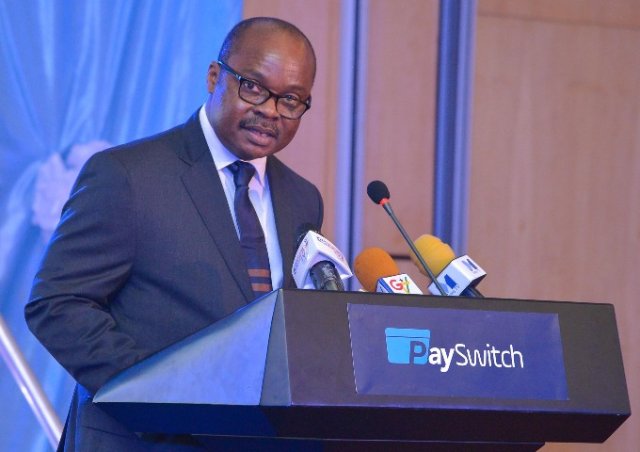The Monetary Policy Committee of the Bank of Ghana has maintained policy rate for the second time running.
Speaking at the MPC press briefing on Monday, Dr Ernest Addison said the MPC’s decision became necessary to sustain the gains the committee had made over the past two or so years.
He mentioned that the exchange rate performance since the beginning of the year put pressure on the prices of goods and services and the BoG’s decision was to keep its rate unchanged to ensure that inflation does not inch up further.
Dr Ernest Addison explaining the decision by the BoG to maintain the policy rate said,
On the inflation outlook, “the Committee noted that the recent exchange rate pass-through has slowed the disinflation process, leading to a slightly elevated inflation profile as shown in the latest forecasts. However, core inflation remains subdued and inflation expectations fairly anchored.
Under the circumstances, the Committee decided to keep the monetary policy rate unchanged at 16 percent. The Committee will continue to closely monitor both global and domestic developments and stands ready to take appropriate measures if necessary to maintain price stability.”
However, there was an expectation that the policy rate would be raised to reflect the current heat in the economy depicted by increase in inflation and recent trend of cedi depreciation.
What 16% Policy rate means to your pocket
The Borrower
To the borrower, who is seeking to raise some funding through credit, maintaining the policy rate, to a large extent implies that Bank lending rates will remain unchanged, hence no increase in cost of borrowing.
However, there are other factors that may trigger an increase in bank lending rates irrespective of policy rate unchanged; the continuing rise of the cost of doing business and the dollarization of the economy. Borrowers (individuals or businesses) should also be aware they may incur other costs like loan monitoring fee, processing fee and cash locked up as collateral, which could still make the cost of borrowing quite significant. It is expected that loan monitoring fee could shoot up because there is more pressure on banks now to maintain asset quality and monitoring is one way to achieve that. Lending rates may be unchanged but beware of the other charges that may make the general cost of borrowing increase. A borrower can, however, negotiate on the interest rate and other loan charges.
Individual Investors
For the individual investor who may be seeking high yielding interest-bearing instrument, it is definitely not welcome news because of the downward trend in returns on investments.
With the fixed income investment slowed down, it is likely the equity sector would begin to pick up as activity would shift there. Therefore mutual funds skewed towards equity may give good yields if fund managers are picking good stocks.
Maintaining the Policy rate also implies that banks would may keep the fixed deposit and savings rates unchanged.
Institutional Investors
With policy rate remaining unchanged, the value in current bonds is not expected to change, hence not a good time to off load on the secondary market. Institutional investors should turn attention to the stock exchange, both the primary stock market and the alternative market (GAX). With the pension funds now floating around, it is expected that investment companies would begin to launch more mutual funds. Private equity firms are also likely to show up soon. A portfolio with the structure of a typical pension fund may not lose much, even in the likely event of rate reduction in the future as they make use of professionals to invest and so they can find other alternatives to invest.








